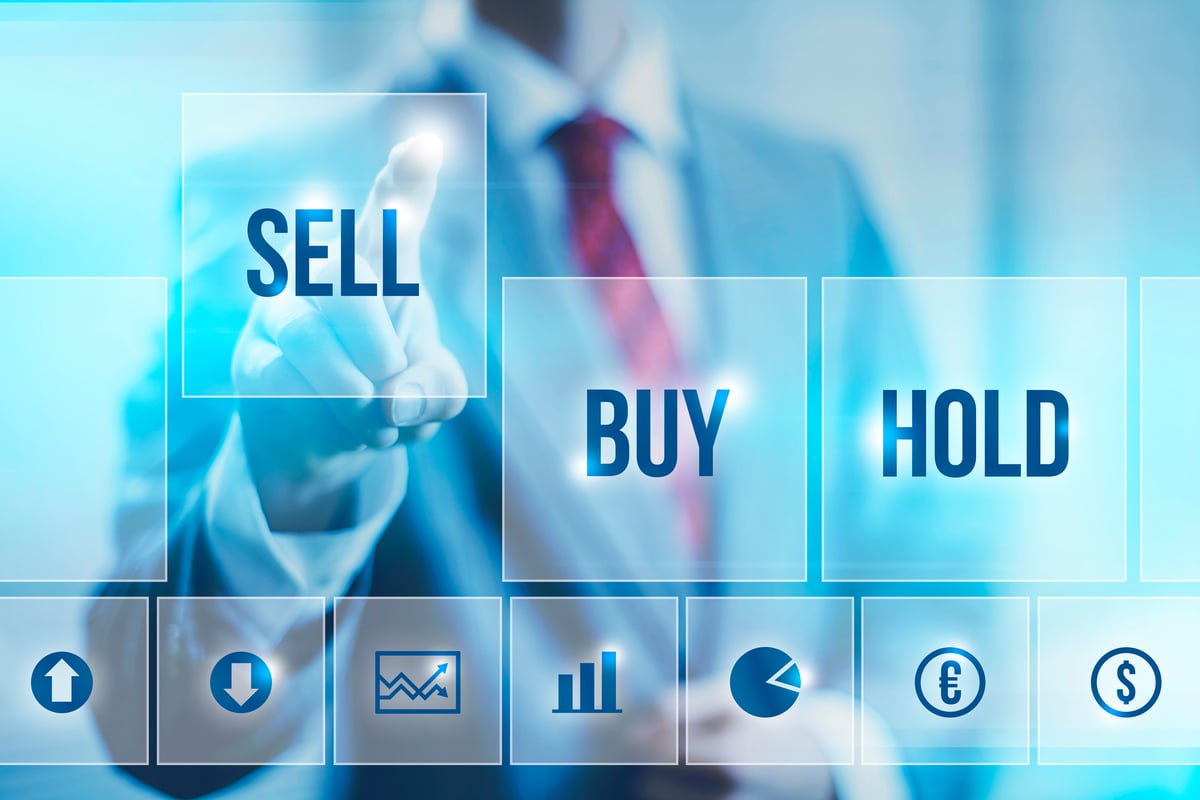Even if it isn't a good idea to fixate on how your investments perform on a month-to-month basis, it's always a plus when your stocks can shrug off the detrimental impact of a bear market. And with the market falling back sharply during the past 12 months amid rising economic instability, that's no idle concern right now.
But some growth stocks aren't having any problem with doing business as usual, and are positioned to keep laughing in the face of a wider decline. Let's look at two of the most promising candidates.

NYSE: ABBV
Key Data Points
1. AbbVie
Wall Street analysts are estimating that AbbVie's (ABBV +0.48%) revenue will contract both this year and next year owing to generic competition to its hit medicine, Humira. Losing market share with Humira means that the top line will potentially fall to reach roughly $53 billion, a decline of around $5 billion from its total sales in 2022. Nonetheless, AbbVie's shares are powering along as always, with their total return increasing by more than 12.4% since mid-February of 2022 -- unusually strong performance for a company that's anticipated to make less money in the near future than it does today.
One of the reasons for this discrepancy between expectations and the stock's performance is that AbbVie simply isn't very affected by economic headwinds; it develops medicines, and people aren't going to stop getting critical treatment unless their finances are especially dire. Moreover, as a biopharma business, its shares are exposed to the beneficial impact of plenty of catalysts stemming from regulatory review and approval of its drugs. So, a bearish revenue forecast for the near term isn't always as big of a factor for its share price in comparison to its chances of commercializing new medicines that could yield new revenue for many years.
And AbbVie has plenty of chances to commercialize new medicines or experience other positive catalysts. It presently has a whopping 19 pipeline programs in phase 3 clinical trials, 13 of which will report their data in 2023 and 2024. Per the American Council on Science and Health's data, by the time a project reaches its phase 3 trials, it has a 63.6% chance of going on to be commercialized, so the company is highly likely to commercialize quite a few new therapies, and soon.
In total, management is banking on its revenue starting to grow from the fruit of some of those potential approvals as soon as 2025, with more growth to come throughout the rest of the decade. In other words, AbbVie can laugh off the bear market even when its top line is expected to be shrinking for two years because it already has a road map for growth that'll take it through 2030. And with the sheer volume of its pipeline's near-term output, management's confidence in the company's future is justified.
2. Costco
Costco Wholesale's (COST +2.03%) has held up mightly in the last 12 months, remaining about flat amid the market's decline. For a business that caters to cash-strapped consumers in the midst of historic economic turmoil, its performance is strong. The big box retailer's haul of more than $16.8 billion in January was 6.9% more than a year prior, despite the intertwined bugbears of inflation and poor consumer sentiment. And with consumers feeling a bit better about the economy over the last couple of months, it's likely that they won't hesitate to continue spending at Costco.

NASDAQ: COST
Key Data Points
That's assuming they ever hesitated in the first place. The company's pitch to customers is that it offers low prices for bulk purchases of groceries and consumer goods, contingent on people buying a membership to access its warehouses. In times of economic strife, like now or in bear markets, there is little reason to suspect that people would want to pay more for their staple products than they would otherwise.
Costco's top line isn't very vulnerable, and its quarterly net income actually rose by 46.5% over the last three years, meaning that its bottom line didn't suffer from the pandemic either.
Moving forward, expect more of the same resilience from this stock. And shareholders can look forward to another tailwind: buybacks. On Jan. 19, management announced a new share repurchase program worth up to $4 billion. While the buybacks probably won't make investors rich, they're a bonus that nicely complements the company's dividend, which currently has a forward yield of around 0.7%.
Management also occasionally issues special dividends, and if it does, it’ll be yet another reason why Costco will probably continue to laugh off the bear market.





